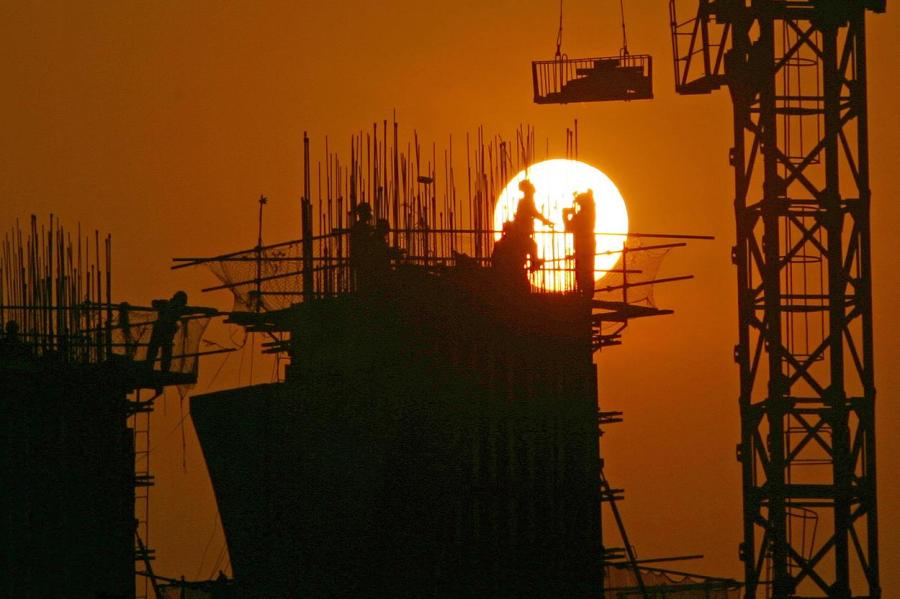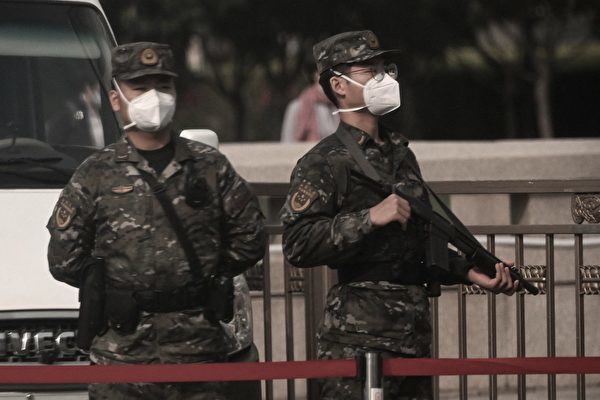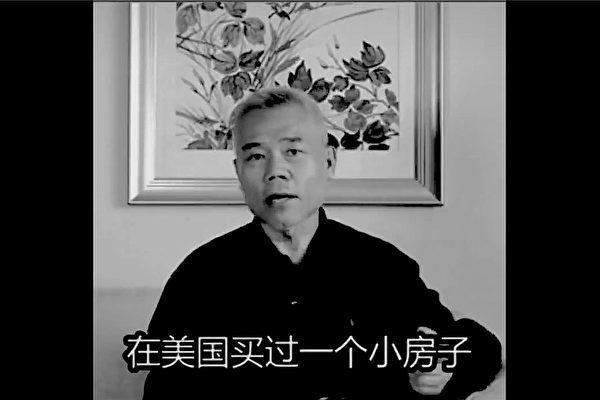Illustration: China's economy continues to decline. (Photo by China Photos/Getty Images)
[People News] Recently, some major Chinese websites and social media platforms have reposted articles that had previously been censored, using historical analogies to comment on contemporary events. One article, titled "When These Four Signs Appear in an Ancient Dynasty, Its Collapse Is Near," has re-emerged. Upon investigation, I found two slightly different versions of the article under the same title. However, both convey the same core idea: "The relentless flow of history is shaped by dynasties, and when a new dynasty ages into an old one, the appearance of four specific signs indicates that its collapse is imminent."
One version, published in Shandong Province by an author using the pseudonym "New Travel Plan Oh," identifies four major warning signs of a dynasty’s downfall: 1. Multiple crises—external pressure and internal weakness. 2. Economic collapse and financial crisis. 3. Loss of military and political control, leading to territorial fragmentation. 4. Conflict between officials and the people, ideological turmoil, and large-scale population migration. The article concludes by citing historical texts: Zuo Zhuan states, "When a nation is about to perish, omens of disaster will appear," while the Book of Documents (Shangshu) records four simultaneous calamities—political disorder, financial bankruptcy, public resentment, and military weakness—as explanations for these omens.
The second version, written by an author named Yishengjun, argues that the collapse of a dynasty is never accidental; it always follows common patterns, much like cracks in a building foreshadowing its imminent collapse. His article lists four distinct warning signs: 1. Social class solidification, making it nearly impossible for ordinary people to improve their status. 2. Sharp population decline, as people lose the confidence to have children. 3. Rulers become arrogant and refuse to listen to honest advice. 4. Increasing taxation while incomes continue to shrink.
These warning signs align closely with the current state of the Chinese Communist Party (CCP) regime. Taking the second article as an example, in recent years, the issue of "social class solidification" has been increasingly discussed. Ordinary citizens are most acutely feeling the effects of "the closing of upward mobility," "class barriers," and "stagnant social development." The phenomenon where people could change their social class through quality education, once a hallmark of the post-reform era, has now become an illusion.
In reality, the wealthy and powerful elites, along with those who depend on them, such as intellectuals, continue to consolidate their positions and wealth through power and privilege. Meanwhile, ordinary people without connections or background are both exploited ("cut like leeks") and unable to find pathways to move up the social ladder. This means that as ordinary people become increasingly burdened by mortgage payments, car loans, and unemployment, they will also grow more desperate. When their frustration boils over, it will pose a serious threat to the CCP regime. The recent surge in violent attacks and vehicular rampages across China serves as evidence of this growing discontent.
At the same time, more and more young people are refusing to have children, even though the Chinese government has lifted restrictions on second and third births. Official data shows that since 2017, the number of newborns nationwide has steadily declined, from 17.23 million in 2017 to just 9.56 million in 2022, falling below the 10 million mark for the first time.
Additionally, according to China’s Ministry of Civil Affairs, in 2021, over 7.64 million couples got married, a 6% drop from 2020. This marked the eighth consecutive year of declining marriage rates. Among these newlyweds, 48% were over the age of 30, an 18-percentage-point increase over the past decade. By 2024, the number of registered marriages had dropped further to just 6.106 million couples.
A survey conducted by Southwestern University of Finance and Economics a few years ago found that nearly 79.4% of Chinese families had no intention of having more children. Among families that already had children, only 13% were willing to have more.
Why are Chinese people reluctant to have children? Experts identify three main reasons: first, a 'psychological unwillingness to give birth'; second, an 'inability to afford raising children'; and third, a 'physiological inability to conceive'. The infertility rate has surged from 1% to 3% in 1980 to a staggering 18% today. The psychological and material barriers to having children, along with the fear of parenthood, can largely be attributed to the Chinese Communist Party (CCP). Many young people believe that it is better not to have children than to bring them into a world where they may become mere 'human resources', living lives filled with unhappiness and adding further burdens to their already stressed existence. This has resulted in a loss of hope among the youth who should be full of passion. What purpose does such a regime serve?
However, in the face of the grim reality under CCP rule, officials at all levels are known to mislead both their superiors and subordinates. Reports suggest that the most significant issue within the CCP and the government is the fear of speaking the truth; what is often heard are clichés and empty rhetoric. Whatever the top leadership states is met with applause from below. The leadership, which has long claimed to guide the nation and the world, remains self-satisfied amidst superficial displays of grandeur and the flattery of sycophants. The consequence of such willful ignorance is that when a crisis finally erupts and public anger is ignited, the regime's downfall will be swift and unstoppable.
Moreover, in democratic nations, when unemployment rates are high, governments typically provide subsidies. In contrast, the situation in mainland China is quite the opposite. The three-year pandemic, the mass exodus of foreign capital, the 'lying flat' mentality of private enterprises, external sanctions, and weak consumer spending have all contributed to a severe economic downturn. The unemployment rate in mainland China remains persistently high, and the income of ordinary citizens continues to decline without any signs of recovery.
Official data indicates that from January to February 2025, national tax revenue continues to decline, decreasing by 3.9% year-on-year, while non-tax revenue, which includes fines, continues to rise. The Chinese Communist Party's 'non-tax revenue' is composed of special income, income from the paid use of state-owned resources (assets), administrative and public service fees, confiscation income, and government housing fund income, among others. Notably, 'confiscation income' primarily comes from local sources, with revenue largely concentrated in public security and the judiciary. This includes general confiscation income from public security, transportation, taxation, courts, and market regulation, as well as confiscation income from anti-smuggling efforts by public security and market authorities. Is this not a form of exploitation of the common people?
It is evident that once the populace can no longer tolerate the regime's oppression, the downfall of the dynasty is merely a matter of time. The comments below the article reflect a growing awareness among the Chinese people. Here are some notable comments from netizens:
—— 'This article has been censored; if you share it, I will keep saving it,' liked by 824 people.
—— 'In the last paragraph, the author’s true intention is revealed,' liked by 524 people.
—— 'I just want to say the article is well written; I won’t comment further,' liked by 267 people.
—— 'The comments section is fantastic,' liked by 149 people.
—— 'Well said,' 'a classic piece,' 'I’d give it ten thousand likes,' 'there are indeed many insightful people in the comments section,' 'I admit I came to read the comments,' 'I am convinced,' 'remarkable.'
……
The Communist Party's red regime is nearing its end; public sentiment suggests this, and is it not also the will of heaven?
(First published by the People News)










News magazine bootstrap themes!
I like this themes, fast loading and look profesional
Thank you Carlos!
You're welcome!
Please support me with give positive rating!
Yes Sure!